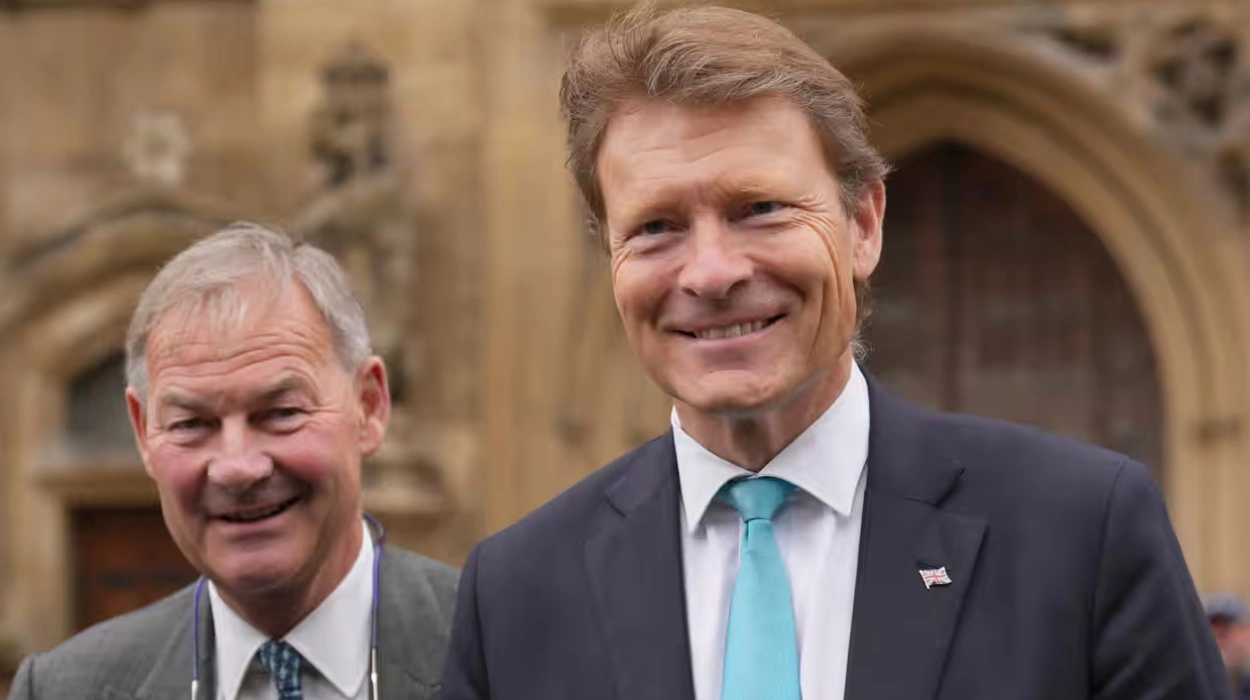UK (Parliament Politics Magazine) – Rupert Lowe, a Reform UK MP, installed solar panels to reduce energy costs, despite his party’s criticisms of renewables and plans to tax solar energy.
Mr. Lowe has turned to solar power on his farm to reduce energy expenses, as reported by The Guardian.
Why did Rupert Lowe choose solar panels to power his Cheltenham farm?
Rupert Lowe, the owner of Ravenswell Farm in Cheltenham, has added solar panels and battery storage units to his land.
The Cotswolds-based farm, which is owned by Mr Lowe, hosts Fergal O’Brien’s racing training. His company, Lowe & Oliver, has installed renewable energy solutions to reduce the electricity costs of running the centre.
The company’s website post celebrating the successful installation said,
“Not surprisingly, the activities and operation of the premises use large amounts of electricity, and with tariffs rocketing … A solar-panel installation was seen as the most efficient option to bring down costs in the long term.”
According to Lowe & Oliver, in a bid to increase the use of solar energy produced onsite, they also incorporated battery storage and installed three batteries to store the energy generated by the panels.
The racing firm is projected to produce one-third of its energy from solar panels.
How did Rupert Lowe defend clean energy amid criticism?
Mr Lowe expressed pride in his involvement in various businesses, which he believed provided him essential insight into job creation and wealth generation. He remarked, “If more MPs had such real-life experience, the country wouldn’t be in such a sorry mess.”
Referring to the importance of clean energy, he argued it must be developed in a way to avoid bankrupting the country and damaging the economy. He stated that at a time when countries like China and India continue to expand their coal use, adding, “Every decision made must have the interests of the British people above all else.”
What did Reform UK propose about a windfall tax on renewables?
The Reform UK party has announced that farmers who install solar panels on their lands will lose the right to qualify for inheritance tax exemptions.
Reform’s deputy leader, Richard Tice, revealed that the party would introduce a “windfall tax” on renewable energy, outlining Reform’s strategy to “reverse the effects of Net Zero.”
At a press conference in central London, Mr Tice announced that Reform would scrap the “appalling family farms tax” the government has imposed, alongside the inheritance tax.
He blamed net-zero policies for the deindustrialization of Britain and proposed that a Reform government would implement a “generation tax” and a “special corporation tax rate” to recover the subsidies provided to renewable energy producers.
The Reform deputy leader warned that energy companies and the National Grid are “on notice” to move power cables underground instead of constructing pylons. He cited a project in East Anglia, where pylons are planned to connect wind farms to the grid, and stated that an official report reveals burying the cables would be a more affordable option.
Meanwhile, a National Energy System Operator’s report revealed that the underground cable proposal would only be more cost-effective if alternative solutions were delayed until 2034.
How did Labour and Liberal Democrat spokespersons respond to Reform UK’s energy plans?
A Labour representative stated,
“Reform’s energy plans are a complete joke. They’ll compromise Britain’s energy security, increase bills, and destroy jobs. While their MPs profit from the renewable sector, they want to deny the British people its benefits.”
Tim Farron, the Liberal Democrats’ environment spokesperson, slammed Reform’s hypocrisy, stating, “If we could power the National Grid with it, we’d be set for life.”
He warned that these policies would jeopardize Britain’s energy security and increase dependence on Russia.


